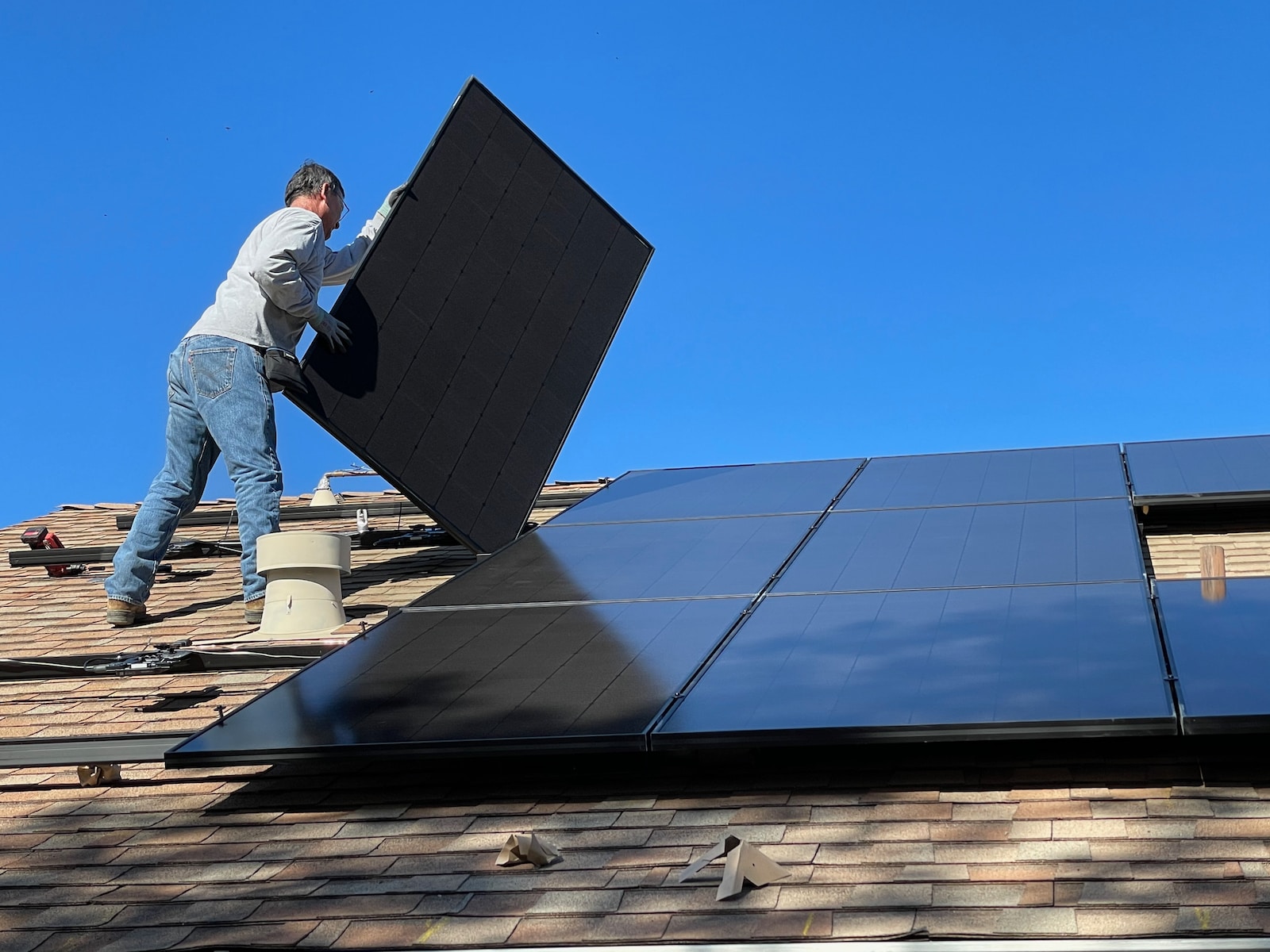Government funding cycles, confusing campaigns, and inflexible policy obstruct net zero
Mixed messages, and ill-conceived one-size-fits-all schemes are among the factors that have helped climate scepticism creep back into conversations about local net zero, environment and transport projects. To over come this we need simple statements and flexible regulations.
‘From an academic perspective, I agree that we can’t separate decarbonisation as a whole from the environment. But from a public policy view point, and for delivery, there’s a serious nuance there in terms of how we convince people.’
Having been instrumental in Wiltshire County Council’s impressive 80% reduction in carbon emissions, reconfigured the authority’s approach to social housing to favour long term solutions, and worked tirelessly to increase the public interest in nature, anyone even remotely involved in winning public support for local authority projects should talk to Cllr Richard Clewer.
Leader of the Council and Cabinet Member for Economic Development, Military-Civilian Integration, Heritage, Arts, Tourism, Health and Wellbeing, he performs widely varied roles within local government, all of which are directly or indirectly tied to green targets, policies and regulations. As such he’s well placed to advise on what does and doesn’t work to drive awareness. He’s also clear that overcomplicating things risks losing the trust of your audience.
‘As a councillor, I have the same director looking at decarbonisation and the environment. They are in the same space. But this can be a problem. Look at the Climate Action Scorecards, which were supposed to assess how councils are tackling climate change through decarbonisation. One-third of the measures had nothing to do with emissions, and instead focused on nature. That conflation, to me, isn’t helpful,’ reveals Clewer. ‘Anything we do that gives critics the chance to accuse us of talking about one thing, and doing something else, is really harmful.
‘Let’s think about ULEZ [Ultra Low Emission Zone] in London. This should have been about health and equality, it’s a public health drive due to the need to reduce particulate emissions and encourage active lifestyles. But it has become tied up with the environment and climate change,’ he continues. ‘Two years ago, at UK100’s COP26 event, I rather naively believed the environmental argument was won, we didn’t need to keep proving the climate crisis, we just needed to deliver. Somehow, in those two years, we have stepped back into the argument.’

The idea that green-minded policymakers, public campaign creators, and information relay-ers are contributing to climate scepticism may not sit well with some, but it’s not hard to se the point. As more and more regulations are introduced, those lobbying against net zero and emissions reduction remain determined to block and counter at every step – as COP28’s high numbers of fossil fuel representatives proved. More and more dis- and misinformation is being circulated, so any and every statement relating to the environment and climate change is analysed with a pedant’s eye. The smallest contradiction, or inaccuracy, can mean national news the next day.
‘We, collectively, are making a space for scepticism to thrive using some valid points. Most people don’t care about green issues. They need to get to work, want to pay less for energy, and have a holiday. When they have headlines from The Telegraph, GB News, and Daily Mail saying climate change is nonsense, or we don’t need to do anything because look at China, or this whole thing will cost you, the atmosphere turns toxic. No pun intended,’ Clewer explains. ‘But the message around carbon and climate should be kept simple.
‘As a council, at Wiltshire I’ve removed around 80% of our carbon emissions, and our head of finance believes this is saving something like £2million per year. When done properly, decarbonisation makes the planet a better place to live in, and saves us money. Somewhere, somehow, we have lost this message. Quite badly, too. And it’s all happened very quickly,’ he continues. ‘At the simplest level, decarbonising a council can be done, we’ve done it, and there’s no reason not to.’
Clewer is quick to point out that local authorities are, on the whole, doing relatively well at reducing their direct emissions, with approaches like retrofitting estates now commonplace. Big business, understanding the enormous cost savings net zero can offer when applied to a multinational company with huge carbon overheads, is also moving forward. Or at least it’s progress is faster than SMEs, with small businesses locked in ‘a constant survival mode’ and working with far more limited resources.
‘That’s where the ‘good stuff’ in terms of climate progress stops, though. Government policy is not specific or consistent enough to support what we need… and that makes provision of things like retrofit much more difficult,’ says Clewer, who adds that rigid policy decisions and a one-size-fits-all-approach are similarly detrimental to taking effective steps. ‘The horror stories I’ve heard about people getting an air source heat pump fitted without looking at building fabric, or getting proper advice.
‘The one scheme doing well is Solar Together, which is running in various councils, including Wiltshire. From that I have close to 2,000 houses with panels fitted. But that’s 1% of the housing stock. And even then, there’s no coherence, and without this, let alone coherent funding, it really is tricky,’ he continues. ‘Then the government says it will give more money for an air source heat pump, but doesn’t say that if the home is energy ‘leaky’ it could cost more in bills.’
For Clewer, there’s another, far more insidious problem holding carbon and emissions reductions back at a regional level. In his words, ‘central government does not trust local government’ and this dictates how funding for things like social housing retrofits, urban heat networks, and other routes to net zero is administered. ‘When cash has to be spent quickly, due to the rules in place, and on very specific projects, sustainable, long-term plans become really hard. The HUG [Home Upgrade Grant] scheme is a prime example.
‘We got, I think, more than £4million from that. And we could then access another £7million, because a lot of other councils could not deliver it in the way the government demanded,’ he tells us. ‘Partly due to timescales, partly because the policy wasn’t suitable for their areas. Too much policy is designed with metropolitan areas in mind, not rural. So it’s this combination of inflexibility and lack of trust that’s really harming things.’
It’s easy to find more examples of what he’s talking about, although referencing the Office for Environmental Protection‘s latest annual report will probably suffice. The independent organisation has demanded faster action on 40 environmental and sustainability targets, but when assessing 51 individual ‘environmental trends’, 25 were considered to be ‘improving’ in Britain. Most of these focused on emissions and air pollution, areas of regulation dominated by the needs of cities.
‘We only hit net zero when we all hit net zero. There’s no point Manchester, Birmingham and London getting there if the rest of us don’t. So policies require a local nuance,’ says Clewer. ‘The village I’m in, for example, you need a car to get anywhere. Public transport is dysfunctional. I don’t have the funding to put into it. On a bike, it would be 11 miles to the nearest train station, and there are safety issues because of the roads that journey entails. Whatever we do, it has to be adaptable to different settings, government focusing on active travel will not help my area – I don’t need to be forced to ‘think’ about walking, for most people where I am, walking is what you do for pleasure on the weekend. Not on a commute to work down a busy A-road or narrow, winding, country lane.’
More features:
The UK climate awards fostering collaboration between industry, community, and councils
Inside the Eco Hubs preparing school kids for green industries
Green futures: a masterclass in inclusive, sustainable community placemaking
Image: Micheile Henderson (top) / Wiltshire County Council, Richard Clewer (middle) / Bill Mead (bottom)


















